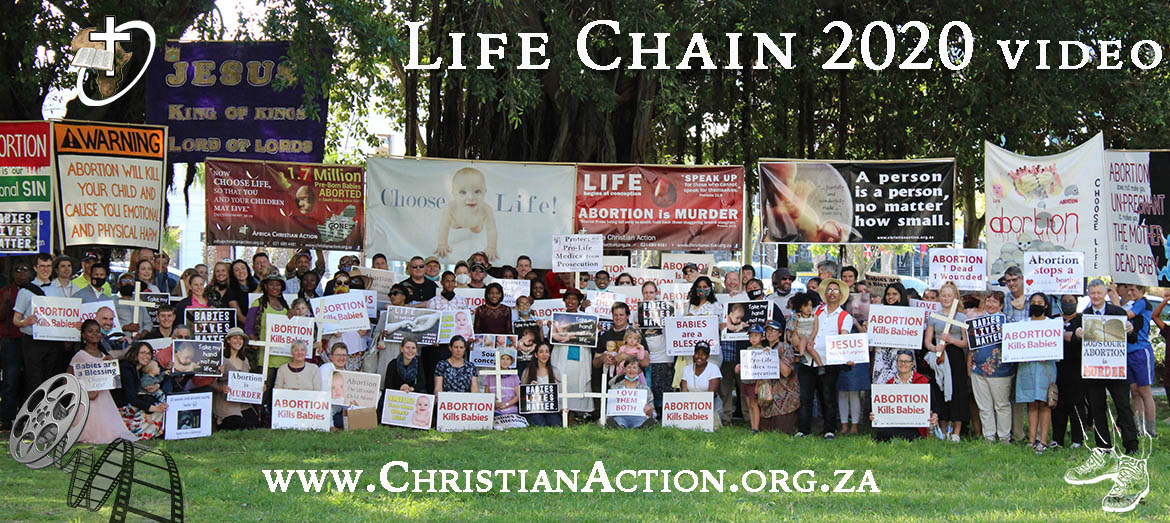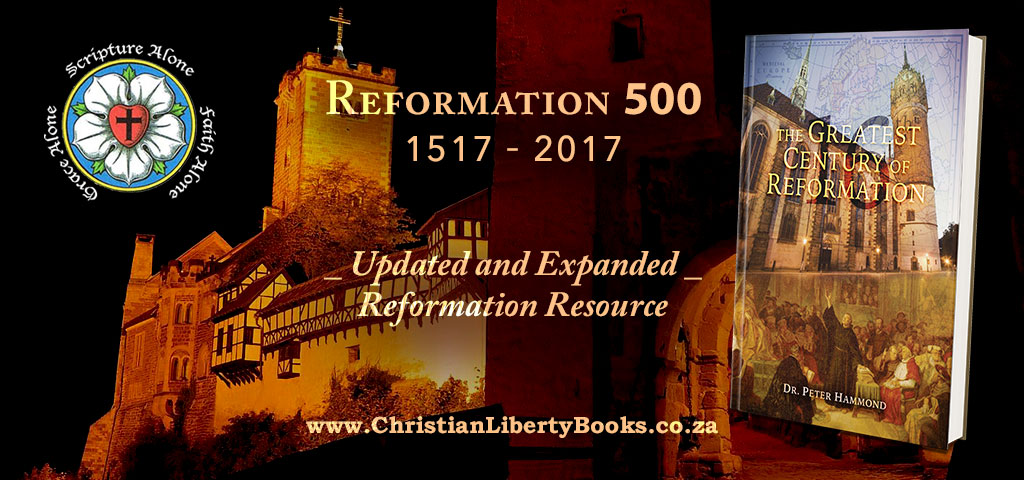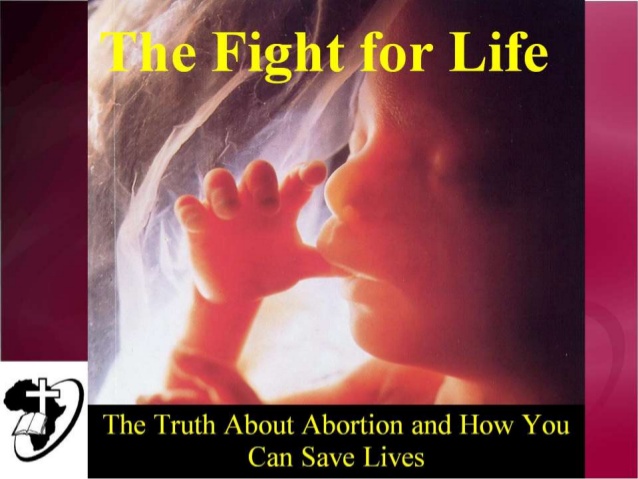GAMBLING - Society's Ruin
 “People who want to get rich fall into temptation and a trap and into many foolish and harmful desires that plunge men into ruin and destruction. For the love of money is a root of all kinds of evil… But you, man of God, flee from all this and pursue righteousness, godliness, faith, love, endurance and gentleness.” 1 Timothy 6:9-11
“People who want to get rich fall into temptation and a trap and into many foolish and harmful desires that plunge men into ruin and destruction. For the love of money is a root of all kinds of evil… But you, man of God, flee from all this and pursue righteousness, godliness, faith, love, endurance and gentleness.” 1 Timothy 6:9-11
What Does the Bible Say?
Gambling is both a fruit and a root of sin, that is; both a result and a cause of sin. It is the result of the sin of covetousness, which breaks the Tenth Commandment: “You shall not covet” (Exodus 20:17). A person gambles because he desires to win money which was not earned through honest work - this is covetousness. Covetousness according to Paul in Colossians 3:4-5 is a form of idolatry; that which a person covets can (and will) become his or her god (idol). This then breaks the First Commandment: “You shall have no other gods before Me.” (Exodus 20:2; Matthew 6:24)
Gambling also breaks the eighth commandment: “You shall not steal.” The poor tend to be greater victims of the lottery. “For the poor, lottery is not ‘harmless entertainment.’” says Dr. J Emmett Henderson. “It is a desperate but vain attempt to survive. But the odds of winning are so cruel that lottery turns out to be theft by consent.”1
“Wealth from gambling quickly disappears; wealth from hard work grows” (Proverbs 13:11 TLB). We need to be wise stewards of the resources that God has given us (1 Corinthians 4:2), not throw them away in pursuit of the god of chance (Proverbs 21:25-26; 28:20). Possessing wealth is not wrong in itself, but being possessed by it is. Jesus said, “... a man’s life does not consist in the abundance of his possessions” (Luke 12:15).
 Our duty is to Love Others and Use Things, not to Love Things and Use Others!
Our duty is to Love Others and Use Things, not to Love Things and Use Others!
Gambling is a classic example of the love of money that the Bible says is a root of all kinds of evil (1 Timothy 6:10).
Gambling is also a root sin in other sins:
Gambling is a major cause of neglect of the family and the break-up of the family. Money that should be spent on food, clothing and housing goes for gambling. God’s Word tells us that the husband is to “be united to his wife” (Genesis 2:24; Matthew 19:5); to provide for her and to love her as he loves himself (Ephesians 5:33). The man who refuses to provide for his family has denied the Faith and is worse than an infidel (1 Timothy 5:8). The father is to provide for his children until they can care for themselves (2 Corinthians 12:14).
Gambling is often a cause of neglecting and dishonouring parents. This is a violation of the Fifth Commandment, as well as abandoning the responsibility adult children have for their parents (Matthew 15:4; 19:19; Ephesians 6:2-3).
Gambling has even led some men to murder and thus to break the Sixth Commandment (Exodus 20:13).
 Finally, gambling often leads to laziness. “...‘If a man will not work, he shall not eat”’ (2 Thessalonians 3: 10). According to the Bible, for the able-bodied, work is a duty, not an option. Work was given by God to Adam before the fall. “He who has been stealing must steal no longer, but must work, doing something useful with his own hands, that he may have something to share with those in need” (Ephesians 4:28). But gambling is a form of stealing, as one can only gain at the expense of others and often leads to stealing in order to gamble more, or to pay off gambling debts.
Finally, gambling often leads to laziness. “...‘If a man will not work, he shall not eat”’ (2 Thessalonians 3: 10). According to the Bible, for the able-bodied, work is a duty, not an option. Work was given by God to Adam before the fall. “He who has been stealing must steal no longer, but must work, doing something useful with his own hands, that he may have something to share with those in need” (Ephesians 4:28). But gambling is a form of stealing, as one can only gain at the expense of others and often leads to stealing in order to gamble more, or to pay off gambling debts.
Some have justified gambling by the passages in Scripture where men of God cast lots. They give the following examples: Numbers 33:54; Joshua 7:14; 14:1-2; 15:1; Jonah 1:7; Acts 1:26. However, these were not instances of gambling because in none of these cases did it involve the exchange of money or something of value. Casting lots was used as a means of seeking God’s direction concerning a decision that had to be made. In other words, it was part of a decision-making process. 2
Therefore, enticing someone to gain money at the certain loss of another violates virtually every principle taught by Christ. It breeds selfishness, greed and covetousness and, in fact, promotes them.
“But it’s for a Good Cause”
 Across South Africa, gambling and lotteries like the “Ithuba Games”, are promoted as a means to give money to charity! But good ends do not justify evil means. By this reasoning, prostitution would be justifiable if some of the profits went to the elderly and child pornography could be legalised as long as a portion of its proceeds went for education! In any case, only a very small proportion of the income ever goes to charity.
Across South Africa, gambling and lotteries like the “Ithuba Games”, are promoted as a means to give money to charity! But good ends do not justify evil means. By this reasoning, prostitution would be justifiable if some of the profits went to the elderly and child pornography could be legalised as long as a portion of its proceeds went for education! In any case, only a very small proportion of the income ever goes to charity.
Every examination of the economic impact of gambling clearly reveals that there is no economic benefit from gambling, since it does not generate any new wealth for the economy, but simply redistributes existing money. Effectively, gambling drains the discretionary income (and in most cases more) from citizens who would normally spend the same money on food for their families, clothing and upgrading their household living standards.
“Holiday Quality Food stores announced in a California newspaper advertisement that ‘since the California state Lottery programme started... we have sold in excess of $1 million worth of lottery tickets. Our food business during this same period has declined by the same amount. Morally, we feel that it is wrong to offer our customers the opportunity to gamble with their food dollars and therefore we will no longer be selling lottery tickets.’” 3
It is a researched fact that disadvantaged socio-economic groups gamble disproportionately greater amounts of their overall income. “According to an analysis for the Observer [Newspaper] by the London School of Economics, the burden of lottery spending is hitting the poor eight times harder than the rich.” 4
 Gambling is Addictive
Gambling is Addictive
“Gambling contributes nothing to the common good. It undermines values, mocks work, finances crime, robs children, enslaves its addicts, subverts governments and poisons whatever it touches.” 5
“Lottery is to gambling addiction what marijuana is to drug addiction,” says Henderson. One out of every 10 adults who gamble will become addicted. 6
Gambling not only has a devastating effect on the family and society, but it also destroys the individual. Debt is a usual result, since gambling inevitably leads to a loss of substantial amounts of money. When normal financial sources dry up, compulsive gamblers often resort to illegal means of acquiring funds. Family break-ups, divorce and loss of friends are frequent. Sometimes, in desperation, suicide is contemplated or attempted. Often it is successful.
The headlines read: “Is a game of chance for unlikely wealth worth the risks of addiction and even death?” 7 “Lotery lei tot selfmoord, skuld en verwyt.” 8 (Lottery leads to suicide, debt and guilt). In spite of this, the government desires the revenue from gambling taxes and has therefore legalised it and promotes it!
“It is outrageous to realise that Minister Chris Fismer who is directly responsible for the legislation of the gambling industry in South Africa has made budget provisions for the establishment of rehabilitation centres for those affected by gambling. That equates to giving a person a bucket to bleed into after stabbing him. I quote from the Daily News dated 20th June 1995, ‘Relaxed laws will make it worse’. Gamblers Anonymous suggests the problem of compulsive gambling is likely to grow with the relaxation of legislation and proliferation of gambling outlets.” Michael Louis, African Christian Democratic Party Member of the Western Cape Provincial Legislature (at the time).
 The Situation in South Africa
The Situation in South Africa
“Casinos are springing up all over South Africa. Their appearance follows the legalisation of gambling in 1996 and the licensing of casinos by the provinces. Legalised gambling is being promoted as good on the grounds that it will create jobs, promote tourism and generate funds for charities. Despite the assurances that casinos are aimed at tourists, it is already admitted that up to 98% of the money gambled will be local. The spending on gambling at the four casinos Gauteng licensed in February 1998 is estimated to reach R3.2 billion a year!” 9
There is clear, documented evidence, to support the statement that with legalised gambling comes an increase in bribery, fraud, extortion and bankruptcy of both businesses and individuals.
“The commission on the review of the national policy towards gambling in the USA concluded: ‘The twin principal goals of legislation, namely revenue raising and crime control are incompatible.’ Why? Because there is always an increase in illegal gambling which accompanies legalised gambling. There is also an increase in bankruptcy, alcoholism, child and wife abuse and other crimes which accompany gambling. This requires more police, more jails, social workers, lawyers, judges, court cases, public prosecutors, public defence attorneys, etc. For example, after Atlantic City, New Jersey, legalised gambling, crime increased 300% and the number of policemen had to be increased 125% at a cost of over a million dollars. Gambling is destructive to society!” 10
Although gambling has only recently been legalised in South Africa, we can already see the same trends, notes Dr Ed Cain in the Signposts titled: Gambling - Why It’s Wrong!
“Since Graceland casino at Secunda opened in December 1997, there are similar tragic stories [to those internationally]. A company director confirmed that an employee had gambled away his whole salary in one night. A respected teacher punched the slots at one machine for hours. When her hunch that she would hit the jackpot did not come true, she turned to drink and was carried out dead drunk! The town is now dotted with loan sharks, most of whom opened after Graceland arrived. One pawnshop has a large display of wedding rings. A welfare organisation’s budget for food and clothing parcels for the poor has increased from R5,000 a year to R11,000 for seven months... A Roodepoort bank clerk (50-years old) stole R5.5 million from Absa Bank over a three-year period. After the court heard she had a ‘pathological gambling disorder’, she was found guilty in 1997. A compulsive gambler (38), who stole R1.46 million from the Thoroughbred Breeders Association while employed as an accountant, was jailed in Johannesburg for eight years in 1995. While South Africa’s anti-smoking campaign is laudable, it is ironic that the government is seeking to control one social vice, while promoting a more destructive one! Tobacco industry claims of providing large sums in tax revenue are countered by pointing to increased medical costs on smoking related illnesses. Similarly, wealth generated by gambling is offset by increased poverty, broken homes and crime!” 11
The National Gambling Act & the Lotteries Act
The government has legalised gambling in South Africa with the introduction of the National Gambling Act 1996, (Act 33 of 1996). The Act provides for the:
* Regulation and co-ordination of certain matters relating to casinos, gambling and wagering.
* Promotion of uniform norms and standards.
* Establishment of the National Gambling Board.
* Initially, 18 licenses were to be granted countrywide.
In August 1997, the Lotteries Act, 1997 (Act 57 of 1997) was passed. The aim is to establish a national lottery for the country, owned and controlled by the central government. The marketing and operation of the lottery will be awarded by contract to an NGO. Small, private and society lotteries will be allowed under certain conditions. 12
 International Gambling Experiences
International Gambling Experiences
In Signposts, Dr. Ed Cain compares the gambling experiences of the international community:
Namibia
“The legalisation of gambling in Namibia has gone horribly wrong, says Prof Peter Collins, a senior lecturer in political studies at the University of Cape Town... A Namibian official said: ‘All we have achieved is to make a few people much richer and a lot of people much poorer.’ It had not been realised that all the money spent on gambling could not be spent on other things. This resulted in the diversion of money from family necessities and savings to gambling. In addition, jobs have been lost, not created.” 13
Britain
“Britain’s national lottery was launched on November 19, 1994 as a dream ticket to personal wealth, while helping good causes. However it has also turned into a nightmare. Some new instant millionaires have been forced into hiding by sacks of begging letters and hate campaigns. Small charities complain their donations have plummeted and help groups report a huge increase in the number of addicted gamblers. Within a year of its launch, the major churches in Britain attacked the lottery. They warned that the poorest and most vulnerable people, who could least afford it, were being sucked into playing week after week. ‘They think there is going to be some very big win that will change their lives,’ said the Church of England Bishop David Sheppard. ‘This is a world of fantasy.’ Gamblers Anonymous said people on all levels of British society were being ruined by the lottery. A businessman who spent £300 (R3,000) a week almost lost his home and his marriage. An Anglican vicar got into serious debt by frittering away £200 (R2,000) a week. The lottery had resulted in children gambling, said visiting British Labour Party MP Jack Cunningham in November 1996.” 14
United States of America
“In 1974, when Nevada was the only state which permitted casino-style gambling, Americans legally wagered some $17 billion (R102 billion). Now that 27 states have legalised it, that figure has exploded to $482 billion (R2,900 billion)! This is nearly five times the South African gross national product. An analysis by US News and World Report of 55 American counties which got casinos between 1990 and 1993 showed they did not experience any special economic growth compared with the rest of America. Moreover, the only jobs created were menial, low paid ones. What did increase was crime! In towns with casinos it rose 5.8% in 1994 while the national average fell by 2%. Since America’s most successful casino, Foxwoods, opened in Connecticut, the police chief of a small town nearby says that local crime related to the casino had cost some $400,000 (R2.4 million).” 15
Denmark
“Almost two million Danish citizens of the population of 5.1 million buy lottery tickets each week. On average, each person spends $250 (R1,500) on games of chance every year. Four years after five legal casinos opened in Denmark in 1991, between 15,000 and 50,000 people suffer from obsessive gambling. The affliction, which has been compared to alcoholism, can lead to personal economic ruin, divorce and even suicide.” 16
 Christians Who Transformed History
Christians Who Transformed History
“Centuries ago, gambling was legal in Britain. It even had a very ‘successful’ lottery. From 1709 to 1824, the British government raised large sums annually by lotteries. Between 1793 and 1824 the average annual amount was nearly £347,000, a huge sum in the days when Anglican priests existed on less than £50 a year! Some of this money was used for good causes, including establishing the British Museum and building London Bridge. During that period, gambling became a national obsession and the same evils we see today were prevalent. Fortunes were lost by members of the wealthy upper class and suicides were not uncommon...
“Although state lotteries were an accepted institution, as early as 1792 a group of lay evangelical Christians began speaking out against them as well as against other social evils. They were influenced by the spiritual revival that swept Britain under the preaching of John Wesley and George Whitefield and they were noted for their love of the Bible and of prayer. They were already occupied by important duties of political commercial and professional life and lived at a time dominated by the turmoil provoked by the French Revolution and its aftermath. Many were Members of Parliament or held other high offices. Among their leaders were William Wilberforce (1759-1833) and the Earl of Shaftesbury (1801-1885), ‘the poor man’s Earl.’ It was said of them that ‘all regarded their vocations as sacred ‘callings’; all conceived their time, abilities and possessions, as naught else than stewardships held in trust for the Lord of Heaven and Earth.’
“Although they were wealthy, they set no great store on it. They regarded the right use of money as one of the practical ways in which they could express their tremendous sense of personal responsibility. One, a wealthy banker, gave three times more to charity than ‘his total expenditure for all other purposes whatsoever’. Asresult of their endeavours, gambling was made illegal in Britain in 1824 and remained so for the next 170 years! The act was strengthened in 1846.
“Gambling wasn’t the only social evil they opposed. They campaigned against drunkenness (and succeeded in reducing crime), duelling, obscene literature and bribery to obtain important appointments... Although they campaigned against these evils, their evangelical piety was neither negative nor other-worldly. On the contrary, it was intensely practical, brotherly, benevolent and unselfish. They acted on their belief that ‘no man stands authorised in the sight of his Maker to enter into, or to continue in, any species of traffic or business, which is either in itself unjust and immoral, or which in any way tends to impair the happiness of the human race.’
“Although they did much to improve the material conditions of the poor, their main considerations were spiritual. Like Wesley, they sought to raise the level of Christian conviction and morality among the people. In our day, the reforms these Christians introduced are being lost because of our apathy. Oh, that Christians would arise with as much determination to again stand against evil and see godly values prevail in our society.” 17
 The Biblical Way to Create Wealth
The Biblical Way to Create Wealth
In Signposts, Dr. Ed Cain analyses gambling and its consequences on society. He also details the Biblical principles regarding the creation of wealth:
“One of the consequences of the legalising of gambling is that wealth is perceived to be a matter of luck. If you are fortunate, wealth comes easily and effortlessly. This theory conflicts with the Biblical principles of wealth creation... Wealth is spiritual, material and non-material. Spiritual wealth includes freedom of religion and conscience... Material wealth includes raw materials, such as land, labour, tools and manufactured goods. Non-material wealth includes life, liberty, intellect, ideas, emotions, will, time, personal relations and goodwill. An overriding principle to be constantly kept in mind in considering all wealth creation and economic relations is that they are to be governed by justice.” 18
“The knowledge that God made each individual unique and gave to each special talents and abilities unleashed in Christians tremendous creativity and dynamism. These were heightened by the knowledge that we are accountable to God for the use of those talents, that we are co-workers with Him and that we have been given dominion over the earth and everything in it.
“The concept that everything we have, we hold in trust for God and are accountable to Him for its use, means Christians don’t waste their possessions or squander them on frivolous luxuries and selfish indulgences. Traditionally, Christians have been thrifty and used the wealth they saved to buy better tools and equipment. Christian creativity, improved techniques and better equipment resulted in the wealth experienced in the Protestant countries during and following the industrial revolution.
“Today’s Christians have moved away from these principles because most churches don’t teach them. As a result, there is little economic difference between Christians and those who are not. Both groups tend to live on credit, indulge their whims and fancies and have no long-term visions.” 19
Prosper by Abiding by these Foundational Principles 20
Respect one another’s property.
Never steal or cheat.
Always abide by contracts.
Be industrious in earning money.
Be disciplined in saving money.
Be wise in investing money.
Be obedient to God in tithing to Christian ministries.
Be discerning in sharing with those in need.
“Work all you can, earn all you can, save all you can, give all you can.”
Africa Christian Action
PO Box 23632 Claremont 7735
Cape Town South Africa
Tel: 021-689 4480
E-mail: This email address is being protected from spambots. You need JavaScript enabled to view it.
Web: www.christianaction.org.za
This article has been adapted from Make A Difference – A Christian Action Handbook for Southern Africa, by Miriam Cain, with contributions from Peter Hammond and Philip Stott, available from Christian Liberty Books, PO Box 358, Howard Place 7450, Cape Town, South Africa, Tel: 021-689-7478, Fax: 086-551-7490, Email: This email address is being protected from spambots. You need JavaScript enabled to view it. and Website: www.christianlibertybooks.co.za.
1 Truth about Gambling and Lotteries, Christian Financial Concept, Larry Burkett, p3.
2 Ibid p31-32.
3 “News You Might Have Missed” Editorial Resources March 1987, pll.
4 The Observer 29/10/95
5 “Gambling a Deadly Game” Larry Braidfoot
6 Truth about Gambling and Lotteries pl4
7 Daily News 26 April 1995
8 Rapport 23 April 1991
9 Signposts Gambling- Why It’s Wrong! Vol 18, no 1, 1999. PO Box 35737 Menlo Park 0102
10 Letter to the Editor by Bobby Parks, Weekend Argus, 16-1717 /94
11 Signposts Vol 18, no 1, 1999
12 Source for this section: SA Year book 1998, p 249 (Government Communication and Information System (GCIS) Private bag X745, Pretoria, 0001, Tel: 012-314-2911 www.gcis.gov.za)
13 Signposts Gambling- Why It’s Wrong! Vol 18, no 1, 1999
14 Ibid
15Ibid
16 Ibid
17 Ibid
18 Ibid
19 Specifically written for this chapter.
20 UCANEWS 1/98 Poverty- Its Causes and Cure. p 6 by Peter Hammond Box 23632 Claremont 7735





































































